Virtual Grand Rounds and Webinars on Thalassemia Archives
Following are virtual grand rounds and webinars on a variety of topics that focus on a collection of inherited blood disorders called the thalassemias. These offerings have been developed through funding by the Centers for Disease Control and Prevention.
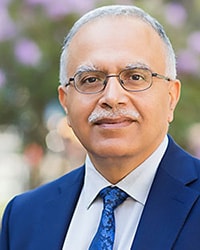
Presenter
Ashutosh Lal, MD
Professor of Pediatrics
UCSF School of Medicine, Division of Hematology
Director, Comprehensive Thalassemia Program
and Iron Disorders Program,
UCSF Benioff Children’s Hospital

Moderator
Jennifer Yu, MD
Pediatric Hematologist/Oncologist
Rady Children’s Hospital
Associate Clinical Professor in Pediatrics
UC San Diego School of Medicine
The thalassemia syndromes are hereditary disorders of globin chain synthesis that result in varying degrees of anemia. Hemoglobin H disease, a form of alpha thalassemia, displays a spectrum of severities ranging from asymptomatic anemia to transfusion dependence. The anemia in hemoglobin H disease is prenatal in onset and hydrops fetalis is possible with some severe variants. Clinical expression is largely determined by the genotype; however, there is a considerable heterogeneity even within groups. Individuals with infrequent genotypes may be misdiagnosed or have a delayed diagnosis that impacts health outcomes. The clinical management of hemoglobin H disease is shaped by the genotype as well as the burden of anemia in affected individuals.
In these rounds, Ashutosh Lal, MD, will discuss the pathophysiology and diverse manifestations of hemoglobin H disease. A monitoring and treatment plan will be presented, and a case study will be discussed to highlight key features of medical management.

Presenter:
John Wood, MD, PhD
Director, Cardiovascular Magnetic Resonance Imaging
Professor of Pediatrics and Radiology
Keck School of Medicine of USC
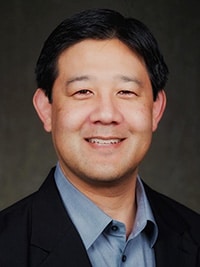
Moderator:
Gregory Kurio, MD
Division of Pediatric Cardiology
University of California San Francisco
Individuals with severe forms of thalassemia typically are at risk of developing cardiac issues, often beginning in early adulthood. This is true for both transfusion-dependent and non-transfusion-dependent thalassemia. For decades, cardiac iron deposition has been the dominant cause of morbidity and mortality in thalassemia.
Fortunately, improved access to oral chelation and cardiac MRI has dramatically decreased the prevalence of iron cardiomyopathy, and thalassemia patients are now living longer. However, improved lifespan has unmasked other important cardiovascular disorders, including pulmonary hypertension, heart failure with preserved ejection fraction, and supraventricular arrhythmias. This seminar focuses on the mechanisms, diagnosis, and treatment of these unfortunate consequences of improved survival.

Presenter:
Stefano Rivella, PhD
Professor of Pediatrics, Children’s Hospital of Philadelphia
Scientific Director of The Sickle Cell and Red Cell Disorders Curative Therapy Center, Children’s Hospital of Philadelphia
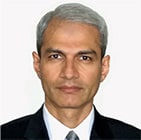
Presenter:
Sujit Sheth, MD
Chief, Division of Pediatric Hematology/Oncology
Professor of Clinical Pediatrics, Weill Cornell Medicine

Moderator:
Muin J. Khoury MD, PhD
Director, Office of Genomics and Precision Public Health
National Center on Birth Defects and Developmental Disabilities
Centers for Disease Control and Prevention
Although relatively new in terms of clinical application, several gene therapy-based treatments have, in recent years, received approval from the Food and Drug Administration (FDA) and begun to be used in real world settings in the United States. In addition, clinical trials using either gene transfer or genome editing continue to show promise, with the potential to impact treatment for patients with a wide range of hereditary disorders in the future. This webinar will showcase thalassemia as a case example in emerging approaches in gene therapy.
In this presentation, Drs. Rivella and Sheth will review the status of the FDA-approved gene therapy process for thalassemia, discussing the science behind it, the results of the clinical trials associated with it, and the clinical implications as gene therapy begins to be applied in a real-world setting. In addition, they will explore future clinical trials involving potential alternative gene therapy treatments.
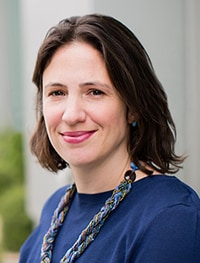
Billie Lianoglou, MS
Genetic Counselor, UCSF Benioff Health
Department of Pediatric Surgery
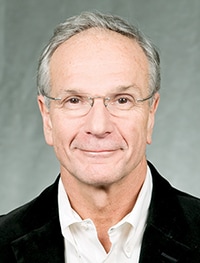
Elliott Vichinsky, MD
Division Director, Hematology Oncology
UCSF Benioff Children’s Hospital Oakland
The thalassemia syndromes are a group of hereditary disorders in the synthesis of hemoglobin that result in varying degrees of anemia. In alpha thalassemia major, a life-threatening anemia can develop in utero, necessitating the use of prenatal blood transfusions. For the newborn, chronic blood transfusion therapy and iron chelation therapy are required after birth. Management of alpha thalassemia major is complex and may present many challenges to overcome. Complications may occur as a result of both the underlying disease process and the treatment regimen.
In these rounds, Elliott Vichinsky, MD, and Billie Lianoglou, MS, will discuss the genetics and the pathophysiology of complications in alpha thalassemia major. A monitoring and treatment management plan will be presented that includes care during the prenatal and postnatal periods.
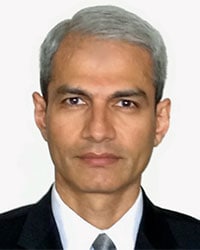
Sujit Sheth, MD
Chief, Division of Pediatric
Hematology/Oncology
Professor of Clinical Pediatrics
Weill Cornell Medicine

Jennifer Yu, MD
Pediatric Hematologist/Oncologist
Rady Children’s Hospital
Associate Clinical Professor in Pediatrics
UC San Diego School of Medicine
In these rounds, Sujit Sheth, MD, will discuss the pathophysiology of complications of thalassemia in both transfused and non-transfused individuals.
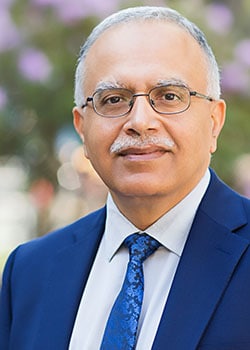
Ashutosh Lal, MD (Presenter)
Professor of Pediatrics, UCSF School of Medicine
Division of Hematology
Director, Comprehensive Thalassemia Program
& The Iron Disorders Program
UCSF Benioff Children’s Hospital

Farzana Sayani, MD, MSc (Moderator)
Assistant Professor of Medicine, Perelman School of Medicine, University of Pennsylvania
Director, Penn Comprehensive Adult Thalassemia Program
Director, Penn Comprehensive Sickle Cell Program
Hospital of the University of Pennsylvania
The non-transfusion-dependent thalassemias are a diverse group of disorders caused by mutations in the alpha or beta-globin genes that affect hemoglobin synthesis and lead to an anemia ranging from mild to severe. The unifying principle is that such individuals are clinically determined to not require regular red cell transfusions in contrast with transfusion-dependent thalassemia. While many are asymptomatic and never transfused, others need intermittent transfusions during periods of infection, pregnancy, or surgery.
In these rounds, Dr. Ashutosh Lal discusses the challenges faced by hematologists in managing individuals with non-transfusion-dependent thalassemia. He also examines how the diagnosis can sometimes be difficult due to complex underlying genetic mutations.

Alexis A. Thompson, MD, MPH
Hematology Section Head
A. Watson and Sarah Armour Endowed Chair for Blood Diseases and Cancer
Ann & Robert H. Lurie Children’s Hospital of Chicago
Professor of Pediatrics, Northwestern University Feinberg School of Medicine
Associate Director for Equity and Minority Health
Robert H. Lurie Comprehensive Cancer Center and Northwestern University Feinberg School of Medicine
The thalassemia syndromes are a group of genetic blood disorders in which the production of one of the two different globin proteins (alpha or beta) that make up hemoglobin is reduced or absent. The result is anemia due to both ineffective erythropoiesis and chronic hemolysis, which typically begins in early childhood and lasts throughout life.
The clinical severity of thalassemia and interventions needed depend upon the globin chain affected and the type of genetic mutation. Persons with the most severe forms of thalassemia often require regular transfusions to treat the anemia and chelation therapy to prevent iron overload and associated sequelae. However, many patients with transfusion-dependent thalassemia (TDT) have struggled with adherence to the ongoing, intensive treatment regimen. Recent innovations, such as oral iron chelation agents, have helped improve adherence, and thus, prognoses (i.e., survival and quality of life in persons with TDT). Nonetheless, some patients and families are interested in definitive, potentially curative treatments.
In this webinar, Dr. Thompson describes considerations for stem cell transplantation, including patient characteristics, donor stem cell sources, and preparative regimens that impact clinical outcomes. She provides an overview of genomic therapies, such as gene addition and gene editing, and reviews the results of clinical studies on thalassemia.

Farzana Sayani, MD, MSc
Assistant Professor of Medicine Hospital of the University of Pennsylvania, Philadelphia, Pennsylvania
Director, Penn Comprehensive Adult Thalassemia Program
As thalassemia care is improving, more individuals with thalassemia are reaching adulthood with aspirations to start a family of their own. However, infertility is one of the major complications of iron overload in patients with thalassemia.
In this webinar, Dr. Sayani reviews the causes of infertility in individuals with thalassemia. She also discusses methods to preserve and evaluate fertility, management options for infertility, and other options available to start a family.

Mona Al Mukaddam, MD, MS
Director, Penn Bone Center
Assistant Professor of Clinical Medicine and Orthopaedic Surgery; Perelman School of Medicine
University of Pennsylvania
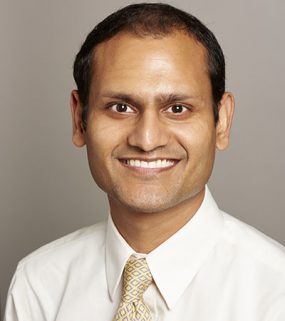
Rahul Agarwal, MD
Assistant Professor of Medicine, Endocrinology, Diabetes & Bone Disease; Icahn School of Medicine, Mount Sinai Health
In these rounds, Mona Al Mukaddam, MD, MS, reviews the factors that contribute to bone disease in transfusion-dependent thalassemia. She also reviews the screening guidelines for low bone mass and discuss treatment options for osteoporosis in thalassemia. Rahul Agarwal, MD, presents a case study highlighting the effective management of osteoporosis in thalassemia.
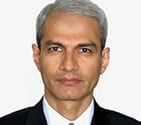
Sujit Sheth, MD
Harold Weill Professor
Chief of Pediatric Hematology and Oncology
Vice Chair for Clinical Research, Department of Pediatrics, Weill Cornell Medicine
Director, New York Comprehensive Thalassemia Center, New York-Presbyterian Hospital/Weill Cornell Medical Center
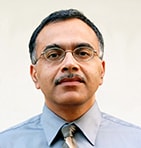
Ashutosh Lal, MD
Professor of Pediatrics
UCSF School of Medicine
Director, Comprehensive Thalassemia Program
Co-Director, Bio-Iron Program
Hematology/Oncology
UCSF Benioff Children’s Hospital Oakland

Elliott Vichinsky, MD
Professor of Pediatrics
UCSF School of Medicine
Director, Northern California Comprehensive Thalassemia Program
Medical Director, Hematology/Oncology
UCSF Benioff Children’s Hospital Oakland
The introduction of effective red blood cell (RBC) transfusions 50 years ago was a critical step in transforming thalassemia from a severe, fatal anemia into a chronic condition. In this webinar, Dr. Vichinsky and Dr. Lal review the range of complications associated with RBC transfusions in thalassemia. They also describe the guidelines for transfusion therapy in beta thalassemia major, the most common form of transfusion-dependent thalassemia. The webinar will also address transfusions in alpha thalassemia major, and recommendations for non-transfusion-dependent thalassemia.

Thalassemia Management: Balancing Blood and Iron
Janet L. Kwiatkowski, MD, MSCE
Director, Thalassemia Center of Children’s Hospital of Philadelphia
Professor of Pediatrics, Perelman School of Medicine, University of Pennsylvania
In this webinar, Dr. Kwiatkowski provides an overview of current, recommended treatments for people with thalassemia, with an emphasis on transfusion-dependent thalassemia. She discusses best practices in transfusion, as well as monitoring and treatment of iron overload.

Behavioral Strategies for Parents of Children with Thalassemia
Lauren Mednick, PhD
Assistant Professor of Psychology
Harvard Medical School, Boston Massachusetts
In this webinar, Dr. Mednick shares strategies that parents can use to help children with thalassemia effectively cope with medical treatments and procedures that may be necessary to maintain their health. This webinar was developed in collaboration with the Cooley’s Anemia Foundation.
Two-part series: Thalassemia: Newborn Screening in the United States
This two-part webinar series is designed for medical professionals who are or may be responsible for screening, diagnosing, and treating hemoglobinopathies. The series was developed with expert guidance from the Hemoglobinopathy Laboratory Workgroup at the Association of Public Health Laboratories (APHL).
Part 1: Alpha Thalassemia: Clinical Aspects
Presenters:

Tim Davis, Chair, BS
APHL Hemoglobinopathy Laboratory Workgroup, Microbiologist 3
Washington State Department of Health
Maria del Pilar Aguinaga, PhD, DLM (ASCP),
Co-Director, Sickle Cell Center
Meharry Medical College
A. Bender, MD,
Attending Physician, Seattle Children’s Hospital
Director of Odessa Brown Comprehensive Sickle Cell Clinic
Part 2: Alpha Thalassemia Newborn Screening in the United States
Presenters:

Tim Davis, Chair, BS
APHL Hemoglobinopathy Laboratory Workgroup, Microbiologist 3,
Washington State Department of Health
Joseph Ubaike
Supervising Microbiologist,
Newborn Screening Section, Connecticut Department of Health
Christine Dorley, MSP, MT (ASCP),
Newborn Screening Division Manager,
Tennessee Department of Health Laboratory Services
The webinars provide information on the following:
- The clinical aspects of alpha thalassemia and other types of thalassemia
- The importance of newborn screening for thalassemia
- Current technologies used for newborn screening for thalassemia
- The current status of newborn screening for alpha thalassemia in the United States
